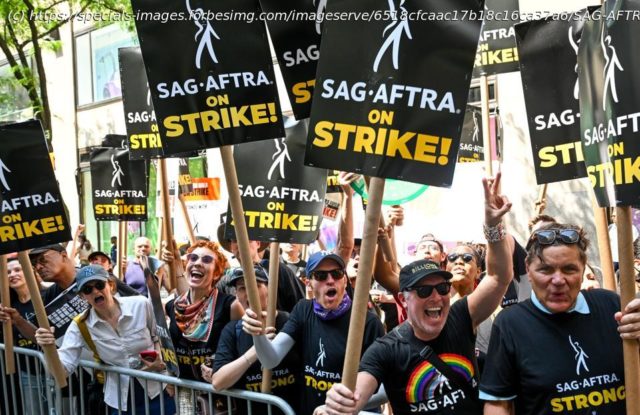Movie studios have been accused of laying off film crews in the United Kingdom with little or no pay as a result of the ongoing Hollywood strikes despite receiving a record $2.1 bn in government subsidies last year to drive employment in the screen sector.
Movie studios have been accused of laying off film crews in the United Kingdom with little or no pay as a result of the ongoing Hollywood strikes despite receiving a record $2.1 billion (£1.7 billion) in government subsidies last year to drive employment in the screen sector.
Hollywood has been gripped by strikes since May. First, the Writers Guild of America (WGA) downed their tools and just over two months later they were followed by the Screen Actors Guild and the American Federation of Television and Radio Artists (SAG-AFTRA). It marked the first time that both parties had been on strike since 1960 and, unsurprisingly money was the driving force.
One of their common concerns was residuals – royalties paid to actors and writers for reruns of the films and television shows they work on as well as other airings after the initial release. The basic remuneration structure was developed in the aftermath of the 1960 strike and it has since been applied to successive forms of media.
Actors and writers are typically paid each time a show runs on network or cable television and they also receive residuals when someone buys a Blu-ray disc or DVD just as they did when VHS tapes were sold. However, the advent of streaming cast a dark spell on this structure as subscribers usually pay a monthly or annual fee and get access to a studio’s entire library, including any new content it releases during the subscription period.
Subscribers to streaming platforms do not pay per movie or show so the residuals have crashed. It set the stage for the strikes which are still paralyzing Hollywood.
A glimmer of hope came earlier this week when the WGA reached a deal with studio bosses. The union still needs to vote on the deal, and will do so in early October, but the rapprochement has enabled writers to return to work. Under their new terms, writers will get residuals based on the popularity of streaming shows, a structure that studios initially rejected.
In contrast, SAG-AFTRA proposed that its members should receive a cut of subscriber revenues generated when their performances are shown on streaming platforms. The Alliance of Motion Picture and Television Producers flatly rejected this which is why its 160,000 members are still on strike.
Start
United States
USA — Cinema $2.1 Billion Job Creation Subsidy In The Spotlight As Movie Studios Sack...






